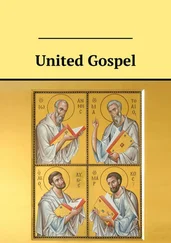Orson Whitney - Gospel Themes
Здесь есть возможность читать онлайн «Orson Whitney - Gospel Themes» — ознакомительный отрывок электронной книги совершенно бесплатно, а после прочтения отрывка купить полную версию. В некоторых случаях можно слушать аудио, скачать через торрент в формате fb2 и присутствует краткое содержание. Жанр: foreign_prose, foreign_religion, Философия, foreign_psychology, foreign_antique, на английском языке. Описание произведения, (предисловие) а так же отзывы посетителей доступны на портале библиотеки ЛибКат.
- Название:Gospel Themes
- Автор:
- Жанр:
- Год:неизвестен
- ISBN:нет данных
- Рейтинг книги:3 / 5. Голосов: 1
-
Избранное:Добавить в избранное
- Отзывы:
-
Ваша оценка:
- 60
- 1
- 2
- 3
- 4
- 5
Gospel Themes: краткое содержание, описание и аннотация
Предлагаем к чтению аннотацию, описание, краткое содержание или предисловие (зависит от того, что написал сам автор книги «Gospel Themes»). Если вы не нашли необходимую информацию о книге — напишите в комментариях, мы постараемся отыскать её.
Gospel Themes — читать онлайн ознакомительный отрывок
Ниже представлен текст книги, разбитый по страницам. Система сохранения места последней прочитанной страницы, позволяет с удобством читать онлайн бесплатно книгу «Gospel Themes», без необходимости каждый раз заново искать на чём Вы остановились. Поставьте закладку, и сможете в любой момент перейти на страницу, на которой закончили чтение.
Интервал:
Закладка:
The Redemption.—Redemption must come, if at all, through some Being high enough and powerful enough to make an infinite atonement, one fully covering the far-reaching effects of the original transgression. The scales of eternal justice, unbalanced by Adam's act, had to be repoised, and right's equilibrium restored. Who could do this? Who could retrieve the situation, bring good out of evil, mould failure into success, and snatch victory from the jaws of defeat? Where was the Moses for such an exodus? Where the deliverance from this worse than Egyptian bondage—a bondage of which Egypt's slavery was but typical?
The life of a God was the price of the world's freedom, and that price was paid by the God of Israel, who descended from his glorious throne, made himself mortal, an exile of eternity, walked in the dust of his own footstool, and by submitting to death, broke the bands of death, and made it possible for man to live again, and go on to the goal of endless glory. He was the Lamb "without spot or blemish," typified by the lamb of the Passover, and preordained for sacrifice, to "take away the sins of the world." He gave himself as an offering, as a ransom for human redemption, and by the shedding of his own blood, paid the debt of the universe, took the world out of pawn, and became the Author of Salvation for all mankind.
CHAPTER IV
Fore-ordination.—The parts played by Adam and Eve in this sublime tragedy were doubtless cast at the same time that the pre-eminent role was assigned to the Redeemer and Savior. Likewise, is it just as reasonable to infer that other great ones were forechosen for service in the cause of humanity. It is more than an inference; it is a revealed fact. What other meaning can be attached to the word of the Lord to Jeremiah (1:5): "Before I formed thee in the belly I knew thee; and before thou camest forth out of the womb I sanctified thee, and I ordained thee a prophet unto the nations"? If this be true of Jeremiah, why not true of other prophets, both ancient and modern? Joseph Smith is on record as saying that men who have such callings to minister to the inhabitants of the world, were "ordained to that very purpose in the grand council of heaven before this world was" ("Compendium," p. 285).
Two Plans Proposed.—In that same Grand Council—the "congregation of the mighty" (Ps. 1:5)—there were two candidates, if we may so designate them, for the redeemership. One was like unto the Father, desiring for the pure love of God's children to uplift them, and at the same time glorify the Great Head, by the sacrifice that he proposed to make. The other was proud, self-willed, and bent upon personal aggrandizement, regardless of consequences. The former stood for freedom—man's agency—and the rewarding of all souls according to their works. The latter proposed coercion, so that not one soul should be lost; thinking, perhaps, that his demanded compensation for proposed service might be made in that way all the more abundant.
Lucifer Rebels.—The first was chosen; the second rebelled, and was cast out, with a third of those then populating the spirit world. That third, following Lucifer, who became Satan, were doomed with him to wander up and down the earth, as fallen spirits, tempting and trying the children of men—those who, as a reward for keeping their first estate, where they "walked by sight," were given a second estate—the privilege of taking tabernacles, and "walking by faith" through the shadowed experiences of mortality.
Upon this subject the Prophet Joseph says: "The contention in heaven was: Jesus said there would be certain souls that would not be saved; and the devil said he could save them all, and laid his plans before the grand council, who gave their vote in favor of Jesus Christ. So the devil rose up in rebellion against God, and was cast down with all who put up their heads for him" ("Compendium," page 285).
Advantage of Having a Body.—Our prophet likewise affirms: "At the first organization in heaven we were all present, and saw the Savior chosen and appointed, and the plan of salvation made, and we sanctioned it. We came to this earth that we might have a body and present it pure before God in the celestial kingdom. The great principle of happiness consists in having a body. The devil has no body, and herein is his punishment. He is pleased when he can obtain the tabernacle of man, and when cast out by the Savior he asked to go into the herd of swine, showing that he would prefer a swine's body to having none. All beings who have bodies have power over those who have not" (Ibid, page 288).
Testimony of Moses.—The following passages from our sacred writings will here find place:
"And I, the Lord God, spake unto Moses, saying: That Satan, whom thou hast commanded in the name of mine Only Begotten, is the same which was from the beginning, and he came before me, saying—Behold, here am I, send me, I will be thy son, and I will redeem all mankind, that one soul shall not be lost, and surely I will do it; wherefore give me thine honor.
"But, behold, my Beloved Son, which was my Beloved and Chosen from the beginning, said unto me—Father, thy will be done, and the glory be thine forever.
"Wherefore, because that Satan rebelled against me, and sought to destroy the agency of man, which I, the Lord God, had given him, and also, that I should give unto him mine own power: by the power of mine Only Begotten I caused that he should be cast down;
"And he became Satan, yea, even the devil, the father of all lies, to deceive and to blind men, and to lead them captive at his will, even as many as would not hearken unto my voice." (Moses 4:1-4.)
Testimony of Abraham.—Still more comprehensive are the appended paragraphs of a similar glorious revelation:
"Now the Lord had shown unto me, Abraham, the intelligences that were organized before the world was; and among all these there were many of the noble and great ones;
"And God saw these souls that they were good, and he stood in the midst of them, and he said: These I will make my rulers; for he stood among those that were spirits, and he saw that they were good; and he said unto me: Abraham, thou art one of them; thou wast chosen before thou wast born.
"And there stood one among them that was like unto God, and he said unto those who were with him: We will go down, for there is space there, and we will take of these materials, and we will make an earth whereon these may dwell;
"And we will prove them herewith, to see if they will do all things whatsoever the Lord their God shall command them;
"And they who keep their first estate shall be added upon: and they who keep not their first estate shall not have glory in the same kingdom with those who keep their first estate: and they who keep their second estate shall have glory added upon their heads forever and ever.
"And the Lord said: Whom shall I send? And one answered like unto the Son of man: Here am I, send me. And another answered and said: Here am I, send me. And the Lord said: I will send the first.
"And the second was angry, and kept not his first estate: and, at that day, many followed after him." (Book of Abr. 3:22-28.)
Truth Speaks for Itself.—What a sublime presentation! What a wealth of doctrine! What a wonderful scope of prophecy! The whole divine scheme for human progress revealed at a glance! Surely the Book of Abraham, whose authenticity has recently been assailed by Christian scholars, and defended by "Mormon" writers and speakers, can stand upon its own merits in refutation of any argument brought against it as a divine record. Who but God could reveal such principles as this marvelous book contains? Who but one inspired of heaven could teach them in so pure a spirit and in such majestic terms? Truth—eternal truth—speaks for itself: it is not dependent upon books or translators. These are but some of the means used in making it known to the world. It is not limited to time and place. Whether in the catacombs of Egypt, or in the mounds of America, whether spoken anciently or modernly,
Читать дальшеИнтервал:
Закладка:
Похожие книги на «Gospel Themes»
Представляем Вашему вниманию похожие книги на «Gospel Themes» списком для выбора. Мы отобрали схожую по названию и смыслу литературу в надежде предоставить читателям больше вариантов отыскать новые, интересные, ещё непрочитанные произведения.
Обсуждение, отзывы о книге «Gospel Themes» и просто собственные мнения читателей. Оставьте ваши комментарии, напишите, что Вы думаете о произведении, его смысле или главных героях. Укажите что конкретно понравилось, а что нет, и почему Вы так считаете.












